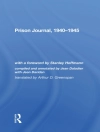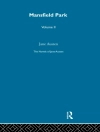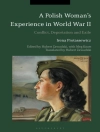In ‘Penelope’s English Experiences, ‘ Kate Douglas Smith Wiggin explores the delightful contrasts between American and English cultures through the eyes of the spirited titular character, Penelope. The narrative combines a charming epistolary format with vivid, picturesque descriptions that evoke the enchanting landscapes and social intricacies of early 20th-century England. Wiggin’s wit and keen observations serve to both entertain and enlighten, while her rich, descriptive prose expertly captures the nuances of English life, inviting readers into a world of quaint villages and idiosyncratic characters. The book places itself within the larger literary context of transatlantic dialogues of the era, addressing themes of identity and cultural assimilation. Wiggin, a prominent author and social reformer, was significantly influenced by her experiences in England and her American upbringing. Known for her dedication to the education of children and her advocacy against child labor, she used her writing as a means to reflect on societal norms and the romanticism of life abroad. Her unique perspective as an American expatriate enriches the narrative, blending her keen insights with a touch of nostalgia. ‘Penelope’s English Experiences’ is a delightful read for anyone interested in cultural exploration, humor, and character-driven narratives. It will particularly resonate with fans of 19th and early 20th-century literature, history buffs, and those captivated by the perennial allure of the English countryside. Wiggin’s work not only entertains but also prompts thoughtful reflections on the interplay of different cultures, making it a valuable addition to any literary collection.
Sobre o autor
Kate Douglas Smith Wiggin (1856–1923) was an American educator and author, known for her charming and vivid style of children’s literature. Born in Philadelphia, Pennsylvania, Wiggin spent much of her career committed to the welfare of children, notably founding the first free kindergarten in San Francisco in 1878 and later the Silver Street Kindergarten. She published her first book, ‘The Story of Patsy’ (1883), to fund her school and continue her educational work. Wiggin gained prominence with the Newbery Honor-winning novel ‘Rebecca of Sunnybrook Farm’ (1903), which became a classic of children’s literature and was adapted into several films and plays. Her ability to blend humor, empathy, and social observation made her work endearing to both children and adults. ‘Penelope’s English Experiences’ (1893), another notable book by Wiggin, is a travelogue that explores English society through the eyes of an American protagonist. Her literature often showcased her wit and the genteel satire through which she lightly critiqued social norms. Wiggin’s literary contributions extend to the adaptation of Mother Goose rhymes and the editing of classic fairy tales, presenting them to young audiences in an accessible manner. Her work remains an important part of the canon of early American children’s literature and continues to be enjoyed by readers around the world.












